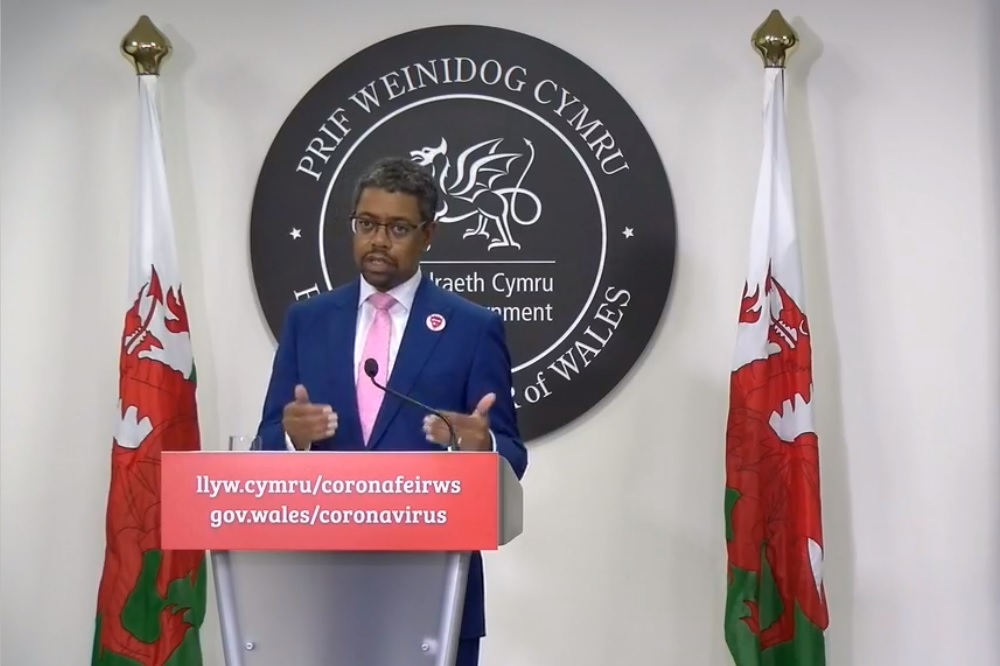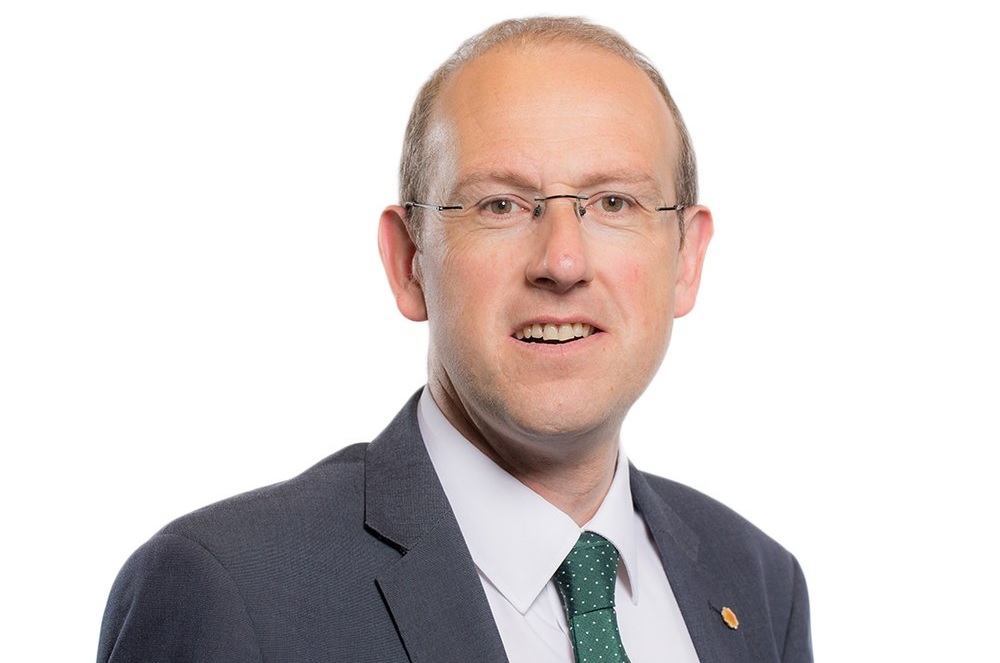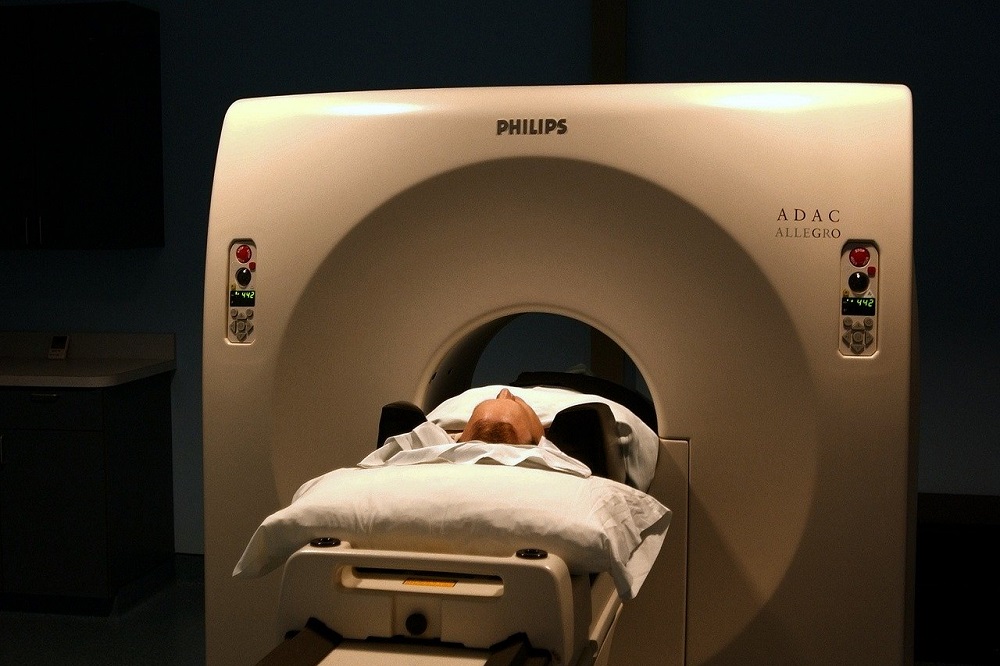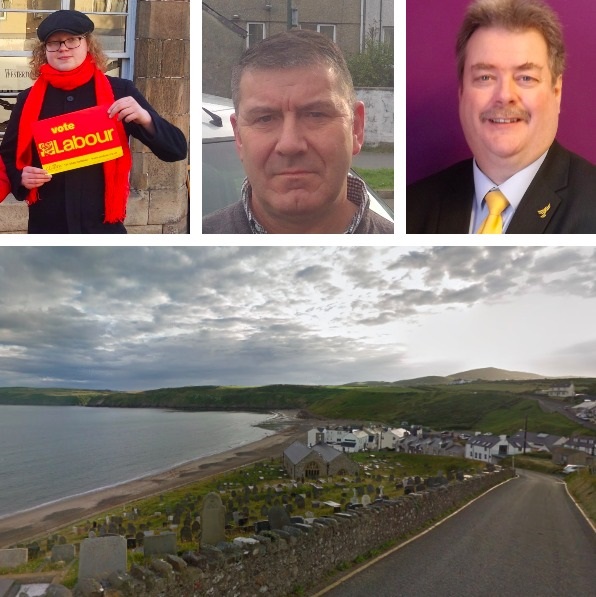News in brief: Concern grows over origins of new South African variant cases

Health Minister Vaughan Gething has confirmed 13 cases of the new South African Covid variant have been identified in Wales, an increase of three from last week.
On Monday Mr Gething’s Westminster counterpart Matt Hancock used a Commons statement to announce a new strategy to combat the South African strain in England, amid fears it could be more resistant to existing vaccines.
People in eight areas of England were urged to stay at home in almost all circumstances and to expect possible tests after cases of the variant were identified.
Yesterday Liverpool and Bristol were added to the list. In Liverpool 32 cases of the new strain have been confirmed and there have been 11 cases detected in Bristol.
Speaking at today’s government press conference, Mr Gething confirmed ten of the cases in Wales have clear links to either South Africa or to international travel.
“In the other three cases, there is currently no clear evidence of how they may have caught the virus,” he added.
“Two of these cases are in north Wales – in Anglesey and in Conwy. They have the same genetic sequence and they were tested on the same day in the same laboratory.
“The third case is in Neath Port Talbot.”
Mr Gething said Public Health Wales was carrying out a “detailed and forensic investigation” to trace how each person became infected with the South African variant and whether there was any evidence of wider community spread.
“We will do everything we can to keep people safe, “he said.
“The emergence of all these new strains – first the Kent strain, which has quickly become the dominant form of coronavirus in Wales, and now the South African and two Brazilian variants – mean it’s more important than ever that we all follow the rules, especially the basics.”
Testing
The minister said there were no plans at the moment to introduce mass testing in Wales, but plans were being drawn up to agree a targeted testing strategy.
“We’re not at this point going to look to an approach that has whole community testing across a whole local authority area”, he said.
“What I indicated was we’re looking at targeted testing.
“That’s why the backward contact tracing is really important to understand who those people may have been in contact with.
“We have further meetings later in the day with Public Health Wales and the chief medical officer’s department as well to understand more about that, to then make choices about what form of targeted testing might look like.”
A further 50 people have died with Covid-19, according to the latest figures from Public Health Wales.
Cardiff and Vale University Health Board area reported 16 deaths since yesterday’s report, taking the total since the start of the pandemic to 661.
There were also 15 further deaths in Betsi Cadwaladr and six in Cwm Taf Morgannwg.
Swansea Bay University Health Board had five further deaths and there were four each in both Hywel Dda and Aneurin Bevan.
In total, 462,497 people have now received at least one does of the Covid vaccine.
PHW also confirmed 455 new cases of the virus since yesterday. Flintshire (48) recorded the highest number in Wales, followed by Cardiff (43) and Carmarthenshire (330).
The weekly case rate in Wales now stands at 127.1 per 100,000 people and the positive test percentage is down to 10.9% per 100,000 tests.

Committee highlights need for urgent changes to funding of the Welsh Government
The Covid-19 pandemic has highlighted serious problems with the way the Welsh Government receives funding from the UK Government, according to the Senedd Finance Committee.
The Committee says the funding mechanisms need to be urgently reviewed by the Welsh and UK Governments as they are not fit for purpose – and Covid-19 has highlighted further the unsuitability of elements of the fiscal system, such as the Barnett formula, which calculates changes to Wales’ block grant.
Llyr Gruffydd MS, Chair of the Finance Committee called for urgent changes to the system and said there is a lack of transparency from the UK Government that makes “it hard for us to know if Wales is receiving its fair share.”
“The way Wales receives funding is complex, inconsistent and often haphazard meaning the Welsh Government has a very difficult task in planning ahead. The last few years have been turbulent, with a snap UK General Election, Brexit and COVID-19 having a huge impact on the way funding has been allocated to the Welsh Government to fund their priorities and our public services, “ Mr Gruffydd said.
“The Welsh Government, like all governments, needs to be able to make long term funding decisions. The impact of this chaotic funding arrangement is that the Welsh Government find it difficult to plan ahead, not knowing what its funding settlement will be; there is also a lack of transparency and it is hard for us to know if Wales is receiving its fair share.
“For Wales to thrive we must be able to develop our tax base and take advantage of the devolved taxes available. We’re calling on the Welsh Government to develop innovative strategies to develop the amount of money the Welsh Government brings in.
“At the moment, the limits placed on the Welsh Government’s ability to borrow are arbitrary and do not bear any relation to the fiscal capacity of the Welsh Government or changing economic circumstances. We’re calling for these limits to be increased.
“We’re concerned that the complex and haphazard funding arrangements in place at the moment, coupled with the limits on borrowing capacity are holding Wales back and making it hard for the Welsh Government to effectively plan for the future. Changes are needed urgently.”

Calls for recovery plan for cancer services in Wales
Plaid Cymru is pressing the Welsh Government to develop a strategy to help cancer patients whose diagnosis and treatment has been affected by the coronavirus pandemic.
The Macmillan cancer charity has calculated that 3,500 people in Wales missed a cancer diagnosis between March and November last year.
Cancer screening services were paused from the start of the pandemic until the end of June because of the the virus and in recent weeks several hospitals have cancelled non-emergency services, including cancer screening, because of significant influx of new Covid patients and staff shortages.
In November Prof Tom Crosby, of the Wales Cancer Network, told BBC Wales cancer cases missed in the first lockdown may now be harder to treat and estimated 2,000 excess deaths as a result of undiagnosed or untreated cancer.
Plaid Cymru Shadow Minister for Health, Rhun ap Iorwerth MS says that Wales’ cancer outcomes are already amongst the worst in Europe, and that the pandemic will further negatively impact these outcomes, adding that Welsh Government must ensure healthcare services are equipped to treat the expected influx of cancer patients needing treatment at later stages of their illnesses.
“I have two appeals – one, to anyone who has any worry, any symptom, please please make an appointment with your GP. And two, to this Labour Government – this is not the time to be without a cancer delivery plan. Wales already has one of the worst cancer outcomes in Europe, and the impact of the pandemic has and will continue to exacerbate this.
“The Welsh Government has to ensure that healthcare services are prepared and equipped to treat the influx of cancer patients needing more complex treatment at later stages as the result of later diagnoses becomes apparent, and symptom awareness campaigns have to be stepped up now and beyond the pandemic.
“More focus has to lie in early diagnosis, and this should be a key part of a strategic cancer plan in Wales.”
The Welsh Government says a “national meeting” will be held in the coming weeks to discuss a recovery plan for cancer services.

Three new candidates revealed for Dwyfor Meirionnydd election
Gareth Williams, local democracy reporter
Two Gwynedd councillors have thrown their hats in the ring to become Dwyfor Meirionnydd’s next Senedd member in a week that has also seen Labour reveal its candidate for the seat.
Lord Dafydd Elis Thomas has announced he is not seeking re-election for the constituency he’s held since the Assembly’s inception in 1999 – currently sitting as independent after being voted under the Plaid Cymru banner.
Both Plaid Cymru and the Conservatives have already revealed their prospective candidates, namely Mabon ap Gwynfor and Charlie Evans.
But it has now been revealed that joining them on the campaign trail in May will be Garndolbenmaen councillor Stephen Churchman, for the Liberal Democrats and Blaenau Ffestiniog-based county councillor, Glyn Daniels for Llais Gwynedd.
On Tuesday, Welsh Labour announced it had selected 20 year old Cian Ireland of Llanaelhaearn to contest the seat.
Mr Ireland, a history student and local trade unionist, said: “I’m excited to have been selected by Labour members to stand in the constituency I grew up, went to school, and work in.
“As a disabled person, I’m also proud to represent a community that has been disproportionately impacted by this pandemic.
“Despite only getting involved in politics on my 18th birthday, I have a wealth of experience from organising student tenants into a union at my university, helping to create a community development plan for Llanaelhaearn during my work for Antur Aelhaearn, and involved in numerous Labour elections including assistant campaign coordinator in Stirling during the 2019 general election.
“As a young candidate I believe it’s crucial that as many 16 and 17-year old’s register to vote for the first time, and I’ll be advocating for the implementation of rural socialism, bringing control and ownership into the hands of communities as the way forward in addressing pressing issues, such as the local housing crisis and low wages.”
Meanwhile Cllr Daniels, the chair of Ffestiniog Town Council, “after much thought,” will be aiming to capture the seat for Llais Gwynedd, having worked as quarryman in the town for 25 years.
He said: “As a native of Meirionydd and with family links in Dwyfor I understand the needs of our local community. Dwyfor Meirionydd is one of the most deprived areas in Wales and we need investment not never-ending cutbacks.
“Too long we have listened to career politicians trying to make a name for themselves promising everything if elected, and all they come up with is their picture in the local paper instead of action.”
“If elected I will do my utmost to support small business in the area and press on the Welsh Government to help our young people to buy their own homes in their own communities.”
Cllr Stephen Churchman of Garndolbenmaen will hope to rekindle the area’s proud Liberal history – with Lloyd George’s party having held both the old Caernarfon and Meirionnydd seats in years gone by.
Having represented Dolbenmaen since 2004, the former railway track design engineer has contested the Dwyfor Meirionnydd seat in all elections since it was created in 2007.
Noting his priorities as securing investment in infrastructure, superfast
broadband connectivity and the health service, he said: “I believe that rural parts of Wales have been forgotten and whilst many towns enjoy the benefits
of connectivity, rural areas languish far behind and our transport system is fit for the nineteenth century, rather than the twenty-first.
“The Senedd needs reminding that Wales exists beyond Labour’s fiefdom of the M4 and A55 corridors.”
The next Senedd election is set to take place on May 6.

Support our Nation today
For the price of a cup of coffee a month you can help us create an independent, not-for-profit, national news service for the people of Wales, by the people of Wales.




